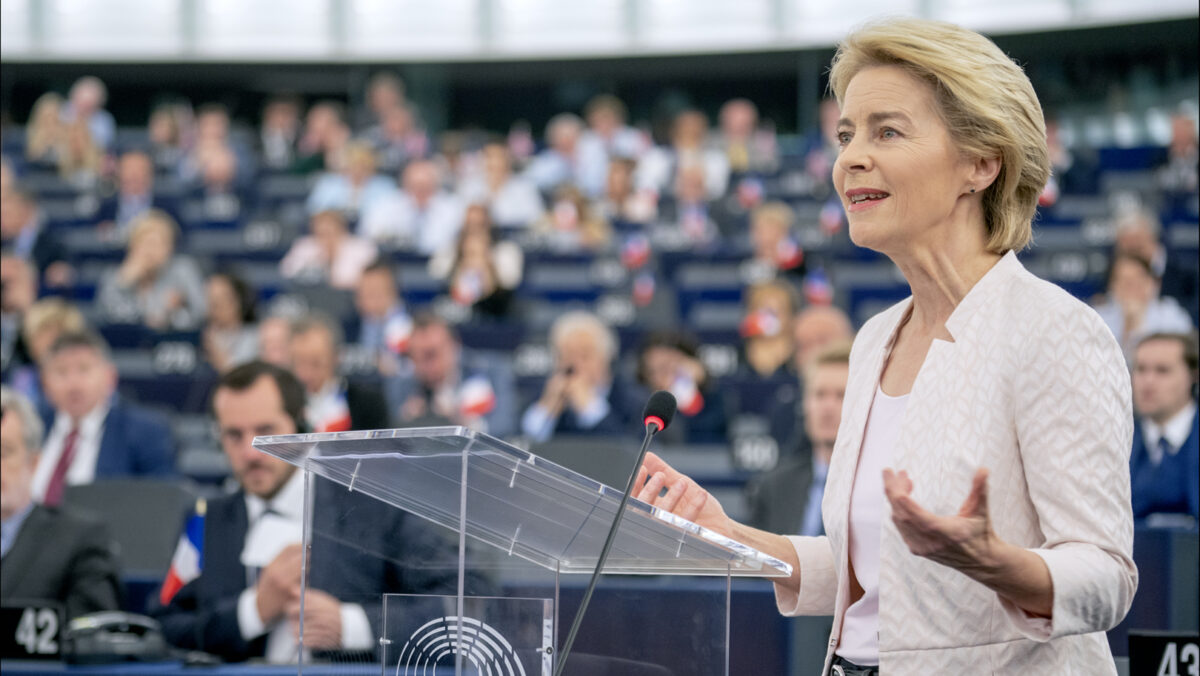Days after a number of European solar associations urged the European Commission to protect the bloc's PV industry from “unfair” Chinese competition, the president of the European Commission, Ursula von der Leyen, provided a series of statements that appear to indicate that the union is now ready to take a completely new stand toward China when it comes to the energy sector.
“We have not forgotten how China's unfair trade practices affected our solar industry,” she said. “Many young businesses were pushed out by heavily subsidized Chinese competitors. Pioneering companies had to file for bankruptcy. Promising talents went searching for fortune abroad. This is why fairness in the global economy is so important – because it affects lives and livelihoods.”
Von der Leyen did not say which specific measures might be adopted to avoid market distortions in the PV sector. However, she said that the European Union will not accept that prices will be kept “artificially” low by state subsidies.
Popular content
“And as we do not accept this from the inside, we do not accept this from the outside,” she said. “So I can announce today that the Commission is launching an anti-subsidy investigation into electric vehicles coming from China.”
SolarPower Europe CEO Walburga Hemetsberger praised the commissioner's “commitment to critical industry made in Europe.” However, Hemetsberger noted that “this promise must translate into action. Solar project developers face inflation-driven headwinds. Europe’s solar manufacturers are at risk of bankruptcy.”
This content is protected by copyright and may not be reused. If you want to cooperate with us and would like to reuse some of our content, please contact: editors@pv-magazine.com.



Fr von der Leyen is once again trying to divert attention from her own culpability for the destruction of the EU solar industry. Why?
Ms von der Leyen was a minister in the various federal governments under Angela Merkel from 2005-2019.
This period saw the destruction of the German solar industry, which was by far the leading one in the EU. And its rise began with various new companies such as SOLON or QCells in the mid-1990s and was then massively promoted by the German EEG from 2000 onwards.
The installation figures in the EU have been growing rapidly since 2006, but it became clear that the competition from China was growing fast and learning even faster to deliver good quality products. It also showed that the Chinese government “believed in solar”. A brutal contrast to the CDU/CSU/FDP government in Germany from autumn 2009 onwards, which had no idea about photovoltaics and certainly no idea about any kind of strategic industrial policy.
The CDU/CSU/FDP government immediately went to work to “severely curb the PV market” with several EEG amendments. SOLON, a major module manufacturer, went bankrupt in 2011. When the installation market delivered more than 7 gigawatts in 2010 and 2011 despite this slowdown policy, the German solar industry suffered its final blow in February 2012 with the infamous amendment to the EEG.
With the announcement of an extreme reduction of the subsidy tariffs within one week, the two ministers N. Röttgen (CDU) and Ph. Rössler (FDP) achieved a total loss of confidence of the capital markets in the further development of the German solar industry. Even more: Euler Hermes subsequently cancelled their credit lines and those of the trade on a massive scale.
The end of the German solar industry was sealed – the German government with the participation of Ms von der Leyen had destroyed it, not the Chinese.
Since 2021, the EU has been announcing time and again the rebuilding of a resilient EU solar industry, even more so since the start of the Ukraine war in 2022. Nothing has happened, and nothing again. In Germany, too, the federal government has so far decided exactly nothing or made nothing available to companies. A total failure again, nothing else. This time, too, the Chinese are not to blame for their own blatant mistakes in the EU.
In response to Mr Remmers, the Chinese industry had low cost financing (via Chinese central bank) – the EU players were left high & dry. In fairness, the ECB (a wholly owned subsidiary of the Bundesbank) was “only following neo-con orders” to focus on inflation etc – because let’s face low inflation is much more important than a vibrant economy. The whole EU RES disaster is very much “Made in Germany”.